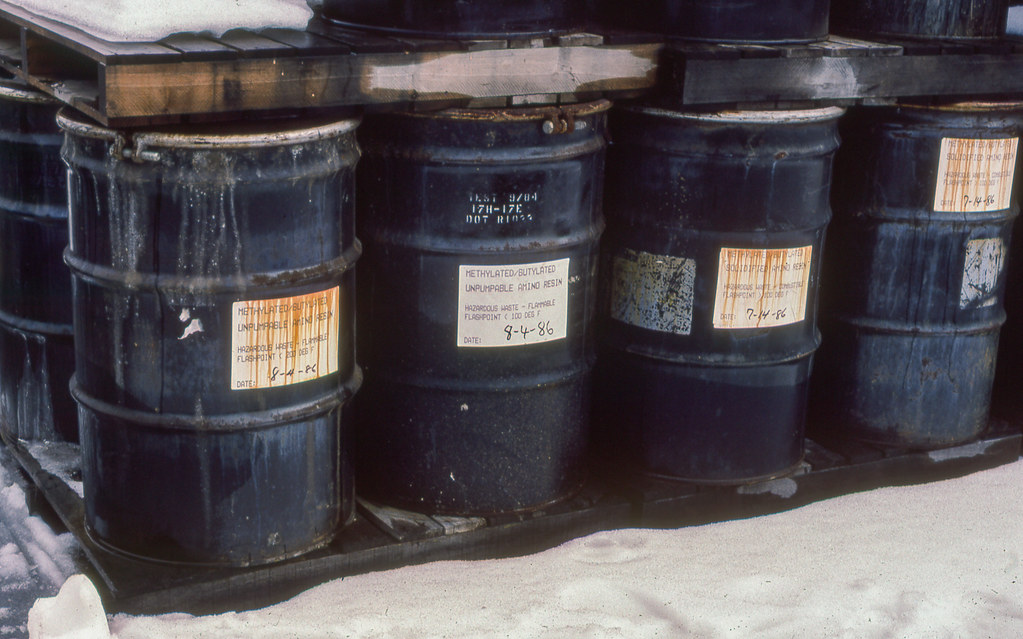An episodic event is when an incident that doesn’t normally occur during a hazardous waste generator’s operations ends up with the generator exceeding the limits that are normal for their category during a month. Episodic events can occur with both small quantity generators and very small generators.
A planned episodic event can be the result of a clean-out of your laboratory tank, removal of excess inventory, or a short-term maintenance project. There are also unplanned episodic events, such as damaged equipment, a spill caused by a storm, or a product recall.
Episodic events are not allowed to last longer than sixty days. The time starts on the first day the hazardous waste was generated and ends on the day this waste is removed from your site. If you have increased production of hazardous waste due to your production increasing, it is not considered an episodic event.
How Many Episodic Events are Allowed for Small and Very Small Hazardous Waste Generators During One Year?
As a small or very small waste generator, you are allowed one unplanned or planned episodic event during a calendar year. You can submit a petition, if necessary, for a second event during the same calendar year. If your first event was planned, you would have to have an unplanned one as a second event. If your first event was unplanned, the second one would have to be planned.
Consequences of an Unplanned Episodic Event When You Don’t Know if the Waste is Hazardous
You may not initially know if the waste you’ve generated is hazardous or non-hazardous when an unplanned episodic event occurs. If, however, you have generated enough waste that bumps you into a higher generator category, and it is hazardous, you are required to notify the EPA or an authorized state within 72 hours. EPA form 8700-12 is recommended by the EPA to notify their office of the episodic event, and start managing your waste under episodic generation provisions.
If you are a very small generator, you must manage your waste in a way that will minimize any fire, explosion, or release event. You must also manage your waste under tank and container standards as stated under 40 CFR section 262.16.
All generators are required to label waste with an “Episodic Hazardous Waste” message using a pictogram, placard, or words that identifies what the hazards are that this waste can pose. The label must also include the start date of the episodic event.
If your waste ends up not being hazardous, you can work with the EPA, or an authorized state to cancel the unnecessary episodic event. This cancelation will not count toward your limit for the calendar year. Conservatively managing the waste as recommended by the EPA, and assuming it could turn out to be hazardous, is consistent with EPA’s guidance for generating new waste that has not gone through hazardous waste determination procedures.
When Does a Petition Have to Be Submitted for an Unplanned Episodic Event?
If you are petitioning for an unplanned episodic event, as a second event in a calendar year, you must notify the EPA within 72 hours of the start of the event. This contact can be made by email, fax, or phone after which you will need to submit a petition that contains all relevant information for the event. You are allowed to manage waste which is hazardous for an unplanned second event under episodic generation standards while you wait for the EPA’s approval.
When Does the Sixty Day Limit Start?
The sixty-day limit for a planned episodic event will begin on the first day of activities connected with the event. The beginning of the event is the first day your hazardous waste was generated. This day stays the same even if you have to complete an analysis to confirm your waste is hazardous.
When Do Your Hazardous Wastes Have to be Transported Off-Site?
If you are a small or very small generator of wastes classified as hazardous, you have sixty days from the beginning of an event to finish it, and have it shipped off-site by Environmental Marketing Services, or another RCRA-designated facility for storage, treatment, and disposal. If you do not have these waste materials removed off-site within the sixty days, it is then added to your monthly generation levels.
Is a Hazardous Waste Manifest Required?
All generators, including the small and very small, have to ship the waste to Environmental Marketing or other RCRA designated storage, treatment, and disposal facility along with a manifest for waste classified as hazardous.
Is a Biennial Report Required for Small and Very Small Generators Holding Episodic Events?
If you are a small or very small generator and generate more than your normal category amounts as a result of an episodic event, but do not become a large quantity generator, you are not required to complete a biennial report.
Who to Contact Regarding Requirements Surrounding Episodic Events
Environmental Marketing Services is your professional waste management team. We have more than ninety years of combined experience in the industry and are here to help you create an innovative and cost-effective solution to all your recycling and waste disposal needs. It is our mission to provide you the best service while protecting the environment, and is your one-stop waste disposal facility.
Our facility at Environmental Marketing Services helps educational systems, government agencies, manufacturing facilities, and more create transportation and disposal services at affordable prices. Contact our office if your facility needs high-hazard chemical management, radioactive waste solutions, lab-pack services or have questions regarding episodic events.



